Toward Resilient Knowledge Economies: Green Growth, AI, and Education in the Middle East and Gulf – Day Two Insights
🗓 Sunday, April 13, 2025
🌍 Hybrid Format – Derna & Toronto
The Future of the Middle East and the Gulf States – Vision 2030 Organized by:
University of Derna (Libya) & Canadian Institute for Middle East and Gulf Studies (CIMEGS)
📸 Photo Highlights
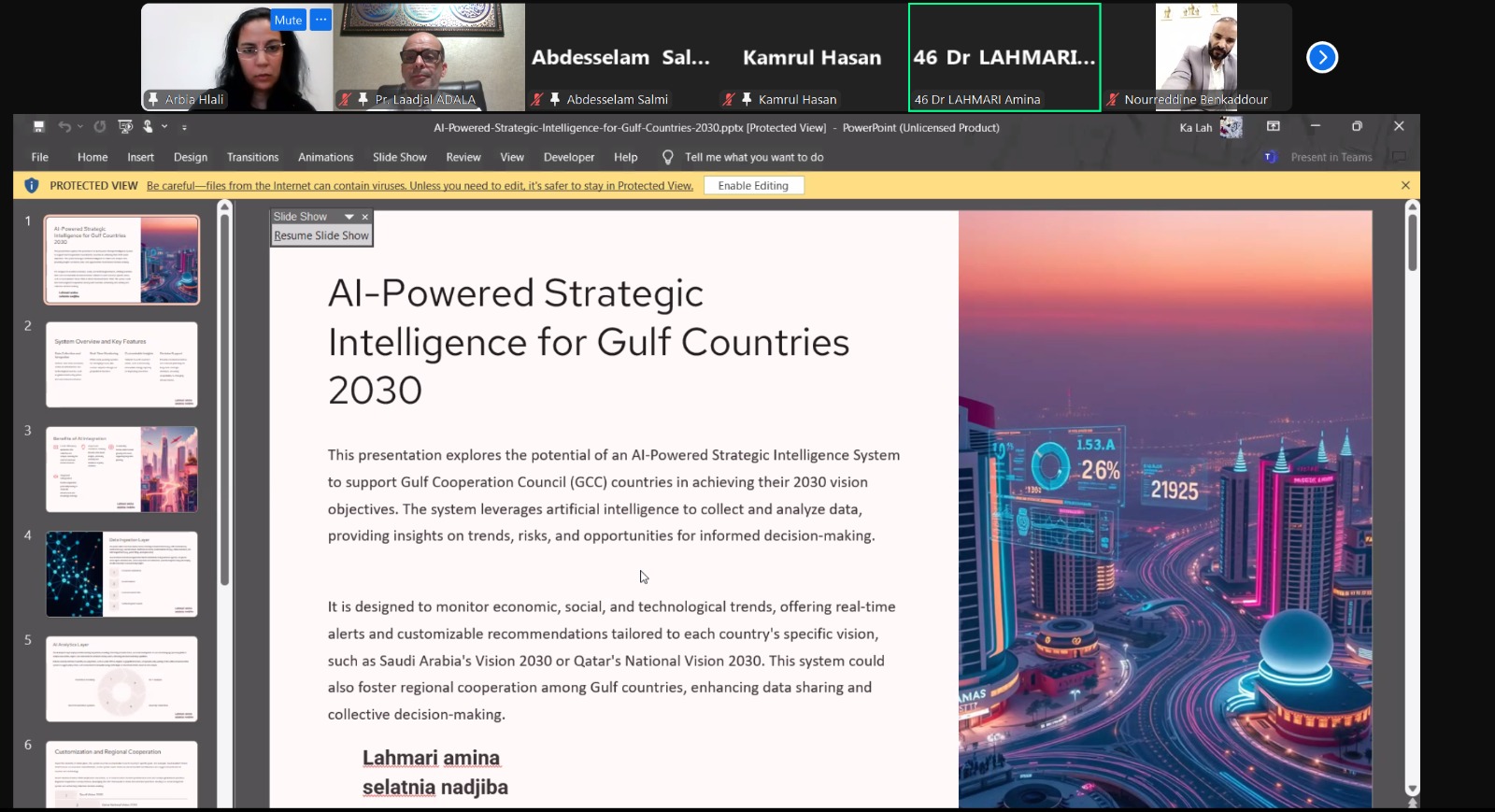
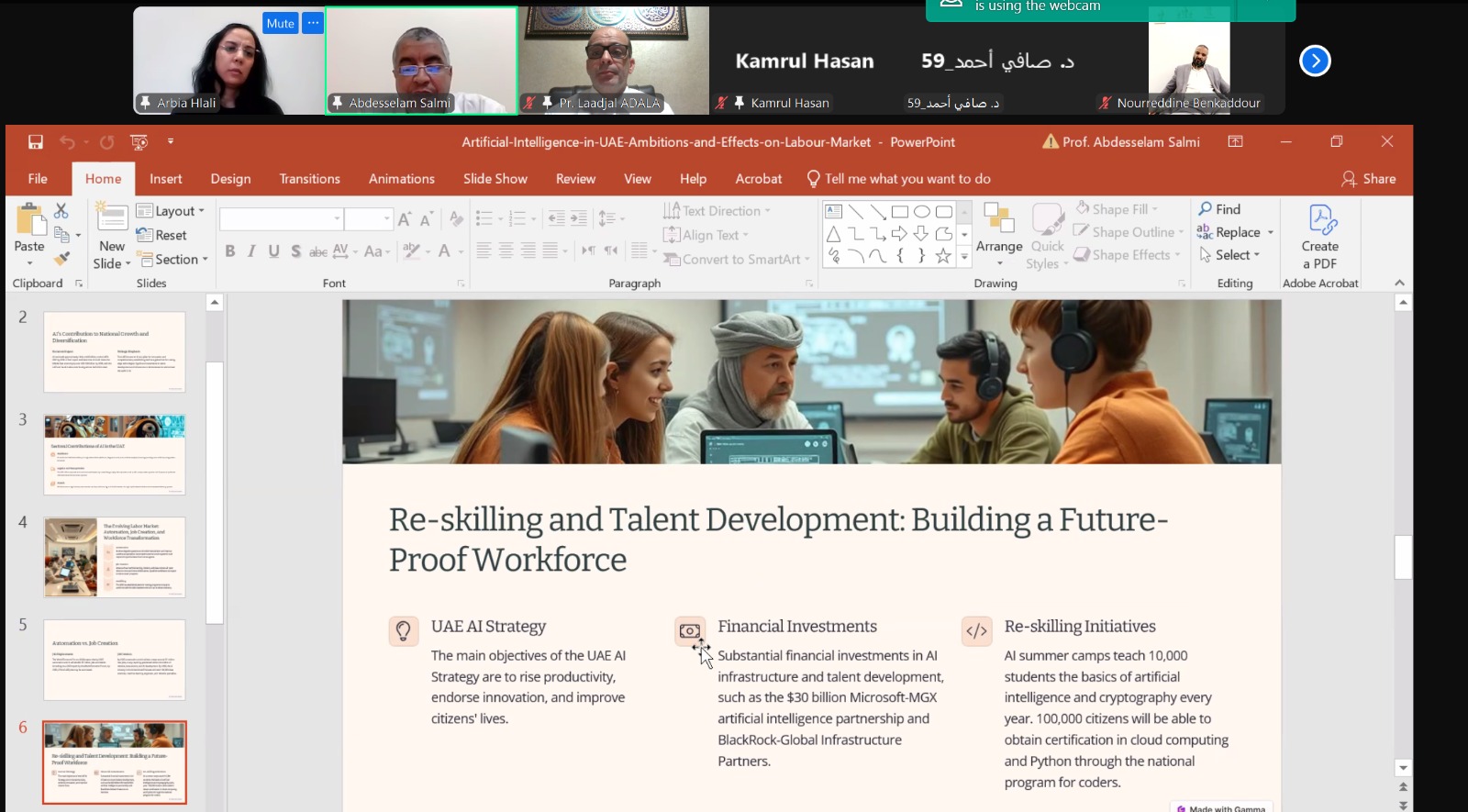
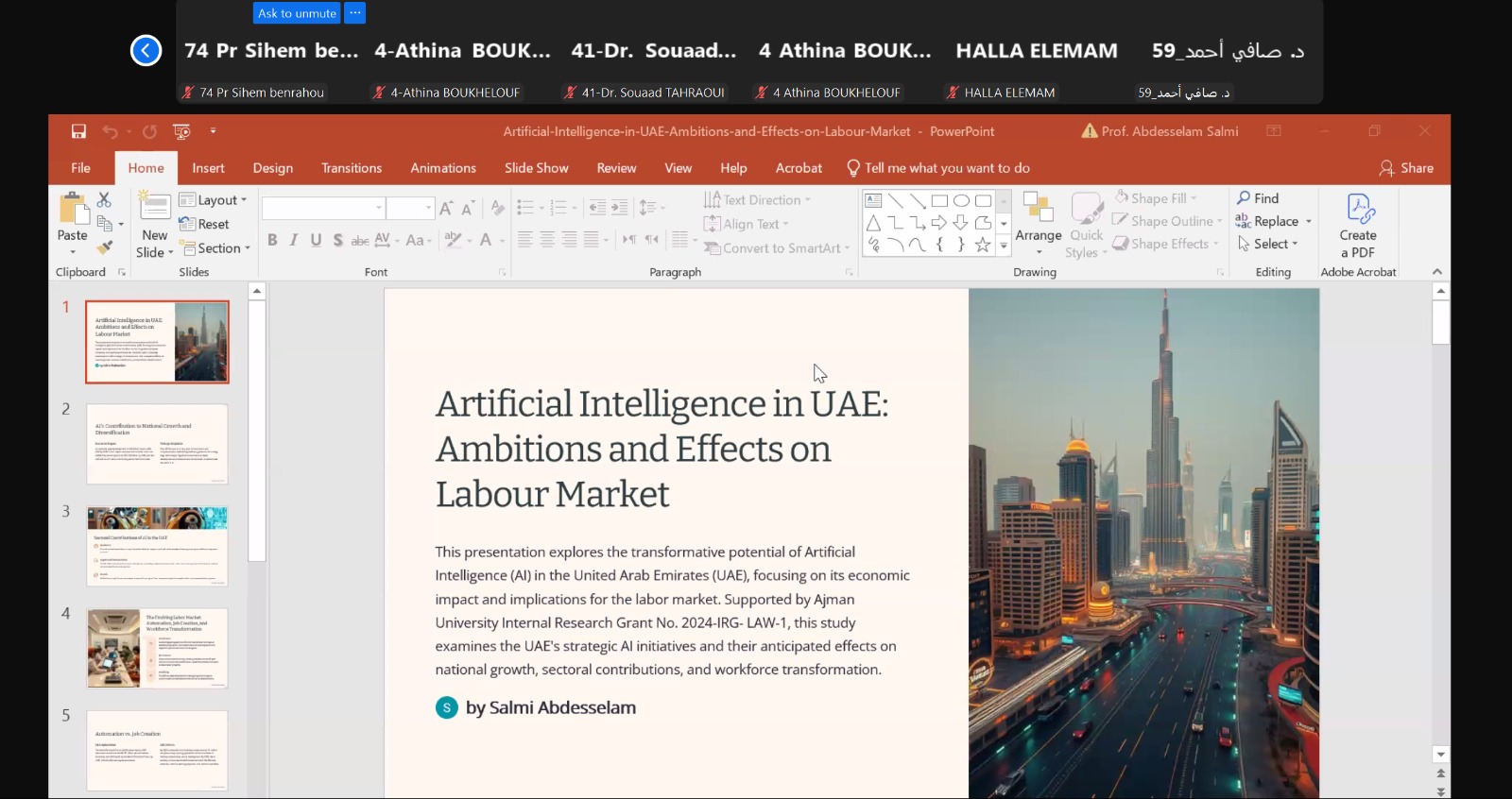
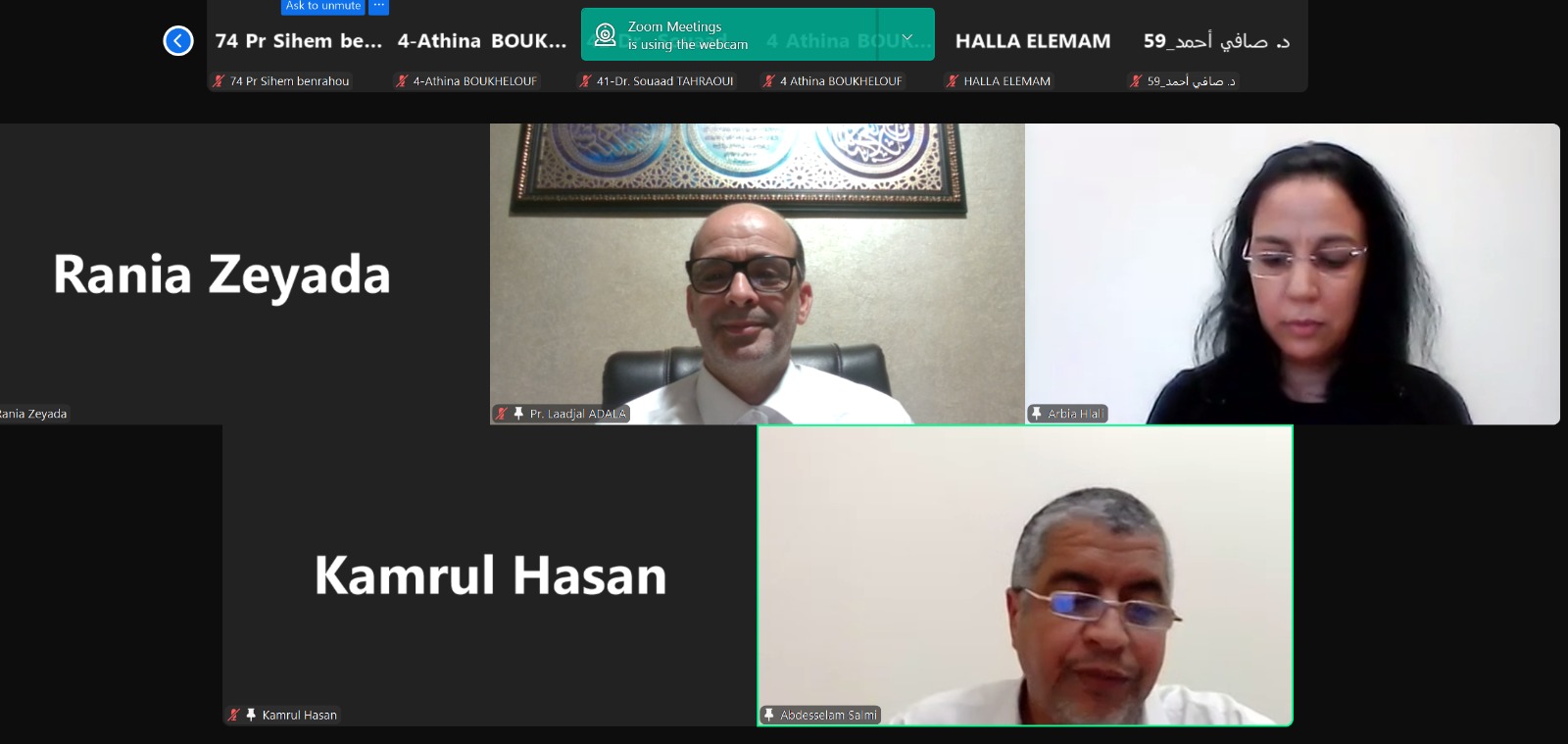
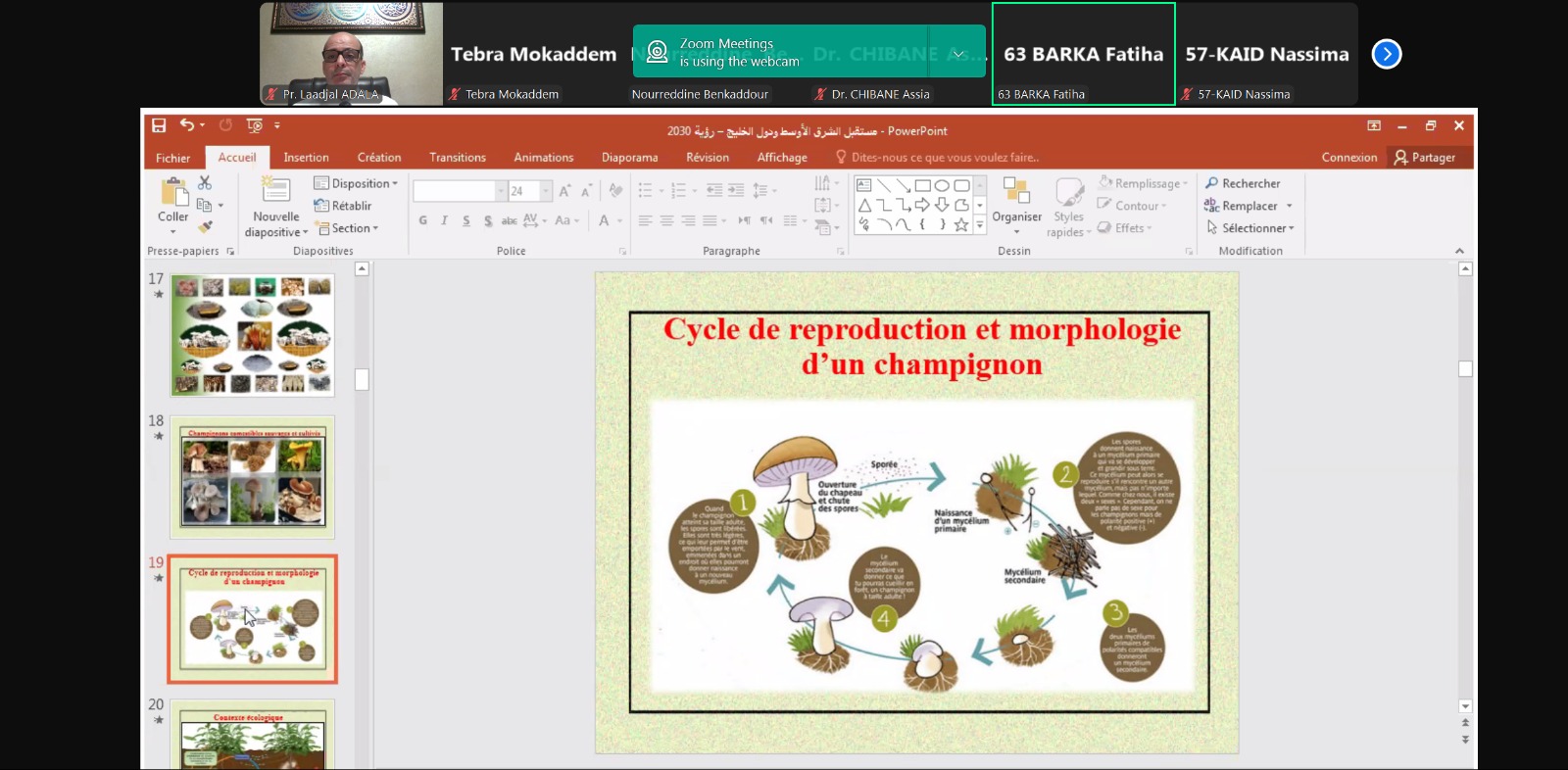
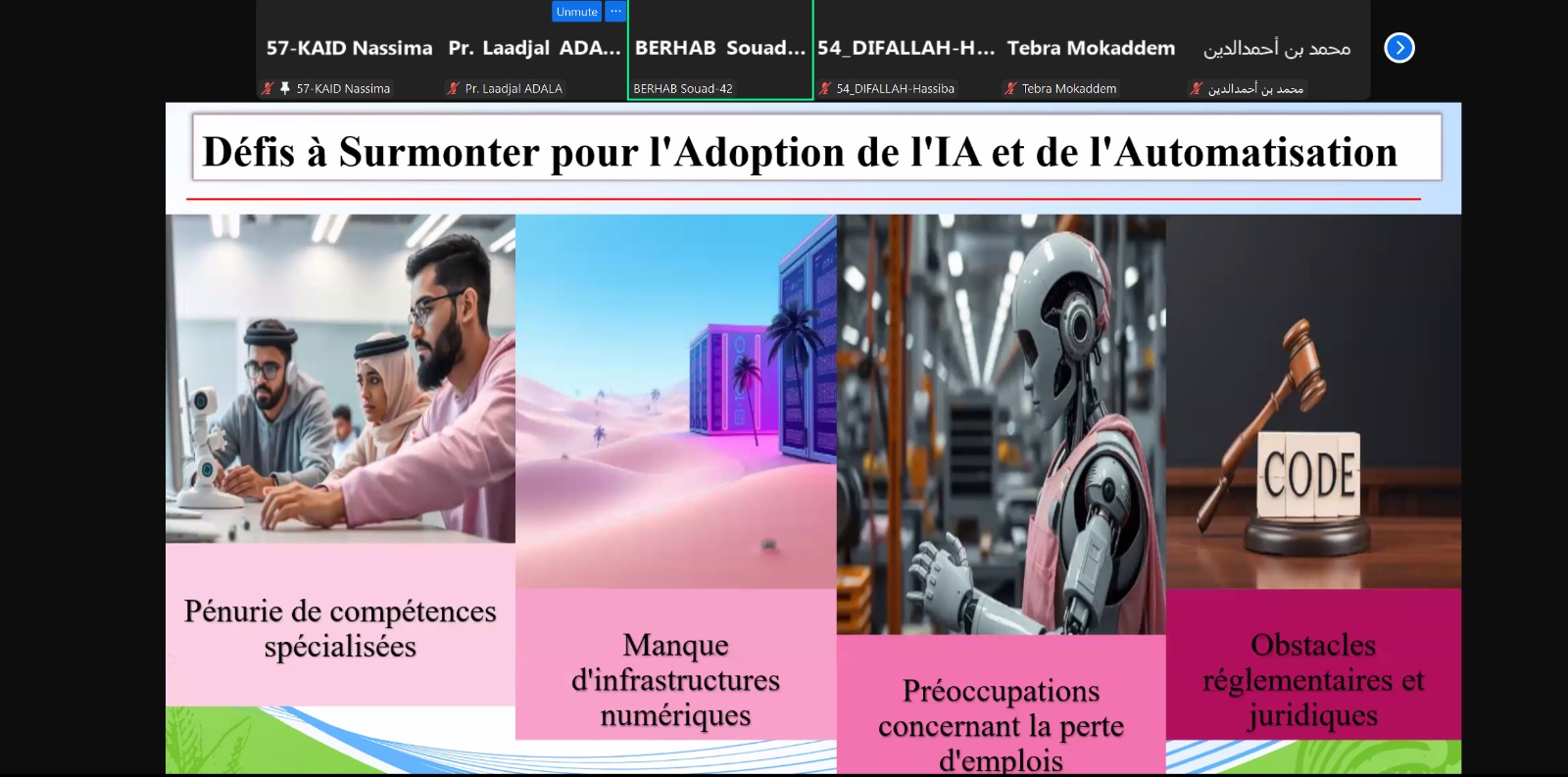
🔹 Scientific Session II: Innovation, Sustainability & Societal Challenges
🕘 09:00–10:30 GMT
Session Chair: Prof. Nassima Kaid
Session Coordinator: Dr. Halla Elziber Elsiddeg Elemam (King Khalid University, KSA)
This session explored emerging societal and economic challenges in the MENA region, with a strong focus on health risks, educational reform, AI integration, and demographic transitions. Highlights included:
- Dr. Hassiba Difallah – Infant exposure to Bacillus cereus in flour in Algeria, raising questions on public health safety.
- Prof. Nassima Kaid – The education-entrepreneurship nexus as a lever for economic resilience in Algeria.
- Dr. Souad Berhab & Dr. Souaad Tahraoui – AI and automation to foster economic transformation in the Middle East.
- Dr. Chekroun Meriem – Impact of green economy practices on sustainable development.
- Dr. Talbi Fatiha – Urban and demographic growth’s effect on energy demand in Algeria.
- Dr. Barka Fatiha and team – Edible mushroom cultivation using local seeds and agri-waste recycling.
The session concluded with an engaging discussion on how innovation and local knowledge can shape sustainable solutions to complex developmental issues.
🔹 Scientific Session III: Green Economy, Food Security & Islamic Finance
🕐 13:00–14:30 GMT
Session Chair: Prof. BELHAMZI Fahima (University of Mostaganem, Algeria)
Session Rapporteur: Dr. Rania Mohamed Mahmoud (King Khalid University, Saudi Arabia)
This Arabic-language session brought together key perspectives on the green economy, sustainable Islamic finance, and agricultural reform in the Arab world. Key contributions included:
- Dr. REGGANI Lalla Fatma & Dr. Lensari Mubarak – Green economic transformation in light of global challenges.
- Dr. Hassina sellaoui & Dr. Ouassila Henia – Role of Islamic finance in supporting sustainable environmental goals.
- Dr. Bouhriz daidj Feriel – Green economy’s potential for Africa and the Arab world.
- Dr. Hadjar Assia & Dr. Atig Khadidja – Economic reforms and sustainable development in Algeria.
- Dr. Hemsas Messaouda & Dr. Beriche leila – National agricultural plan’s role in achieving sustainability.
- Dr. Ayad kheira – Food security and development.
- Prof. Fadila boutora – Activating green economy pathways toward sustainability.
The session emphasized integrating Islamic financial tools, food system reforms, and green policies into national and regional strategies.
🔹 Scientific Session IV: Artificial Intelligence and the Future of Education
🕒 15:00–17:00 GMT
Session Chair: Dr. Arbia Hlali (Taibah University, Saudi Arabia)
Session Schedule Coordinator: Dr. Mohammad Kamrul Hasan (Tongling University, China)
The final session of the day focused on the transformative role of artificial intelligence and its implications for education, labor, cybersecurity, and national development. Key contributions included:
- Prof. Abdesselam Salmi – AI ambitions and labor market shifts in the UAE.
- Dr. Iahmari Amina & Dr. Selatnia Nadjiba – AI-powered strategic intelligence system for the Gulf.
- Dr. Athina Boukhelouf – Human-centered AI in rethinking education.
- Dr. Abir Soundous Ghaskil – Education systems to support Vision 2030.
- Dr. Wafa Aggoun – AI regulations and sustainable education in the Middle East.
- Prof. Khedir Soufiane & Prof. Laadjal Adala – AI and digital transformation to support national economies.
- Dr. Souaad Tahraoui & Dr. Souad Berhab – Hydroponic agriculture and food security in the Middle East.
- Prof. Sihem Benrahou – Cybersecurity and Vision 2030’s digital frontier.
This forward-looking session showcased diverse international perspectives, underscoring the need for AI strategies that prioritize ethics, equity, and inclusive development.
Prepared in Toronto, Canada
🗓 April 13, 2025
Issued by:
Canadian Institute for Middle East and Gulf Studies (CIMEGS)